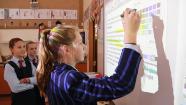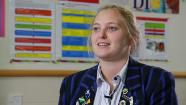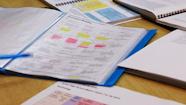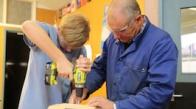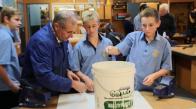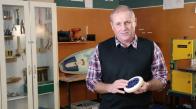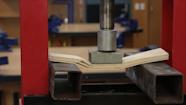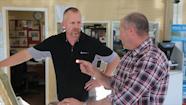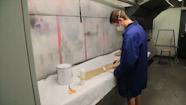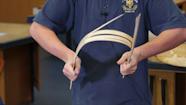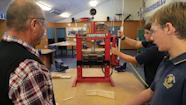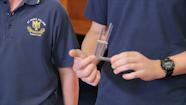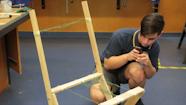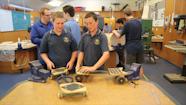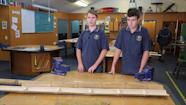Judy Delbridge broadens thinking around data collection, allowing her students to produce creative results.
Evidencing student learning in technology
Transcript
Judy Delbridge: Currently we collect evidence in a number of different ways. I allow the students to record in any way that they wish. So, many will use a portfolio or a visual diary. We use personal websites, blogs, particularly at year seven – we brought those in last year and so all students blogged, which was great. Tumblr, Google Docs is really, really good, particularly for our seniors. It means that their work is always accessible, it’s always there and sharing feedback and so on from my perspective is really good and it’s really, really easy.
The girls share a lot of their work in sort of activities when they’ve been working collaboratively. They use their phones to take down any collaborative work they’ve done on the whiteboard or if they’ve been doing group work, just quickly take a photo, snapshot it, put it into a website.
We use video. They create their own YouTube clips. So all sorts of different ways, but at this stage I allow the girls to do it in a way they feel most comfortable. But what we are doing at the moment as a team, is working on digital google sites and creating websites which we are trialling with our year nines next year right across the board. So that’s going to be fun because you can of course embed video and all sorts of things in to that, and the girls have been trialling it with one class this year. It’s been our sort of our professional development this term, and they’re loving it, embracing it, absolutely fantastic.
I think that if you really broaden your thinking and the way that you allow the students to collect their evidence you get far more creativity. I think that the students just embrace and they get seriously creative.
Related videos
Growing knowledge beyond students' practice (02:27)
Claire Wood and a year 8 student talk about unpacking examples of technologists' practice to grow curriculum understandings.
A year 13 student talks about her career pathways (00:55)
A student shares about combining her interests in law and food technology.
School-wide programme planning (04:18)
Cheryl Pym explains how collaboration forms the foundation for school-wide planning in technology education.
Combining knowledge and practice (01:58)
Steve Andrew explains how understanding materials is essential for effective technological practice.
Linking hands-on experiences and understandings (03:54)
Hands-on experiences allow the students to see materials understandings in action.
Play, experiment, explore (02:55)
Steve Andrew lets the students see, feel, and play with products to develop their understandings in materials.
Finding materials to meet the specs (02:36)
Steve Andrew shares how students identify material specifications in a brief and then test materials to find those that are suitable....
School–industry relationship cuts both ways (03:36)
Steve Andrew and Terry Rillstone describe the way the relationship between St John's College and The Shop has benefits for them both....
Pushing the boundaries with materials (02:53)
Steve Andrew describes how his senior students have the confidence to select and work with unfamiliar materials.
Exploring unfamiliar materials (02:44)
Year 12 students from St John's College describe what they know about bamboo and how they are applying this knowledge to their projects....
Students and teachers talk about testing materials in year 11.
Manipulating, forming, and transforming
Students in year 10 describe manipulating, forming, and transforming materials.
Evaluating materials for an outcome
Steve Andrew and students talk about using their knowledge to test materials for their projects at year 12.
Year 10 students describe some of the attributes for the snake skates they are developing.
Senior students select their own issues
Year 12 students talk about the issues that they have selected for their projects.

